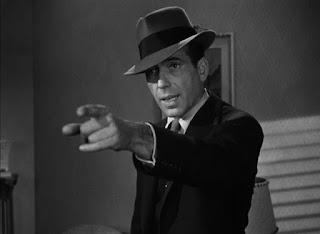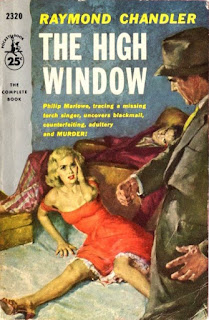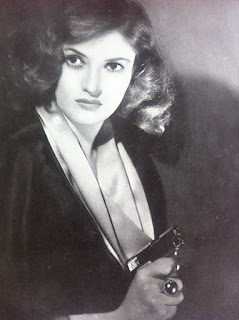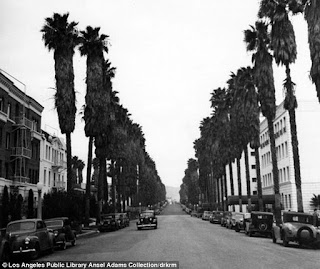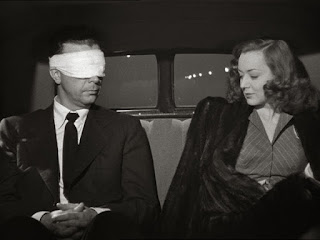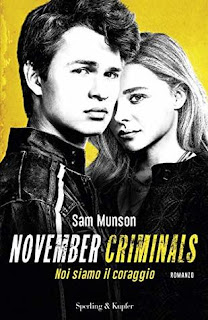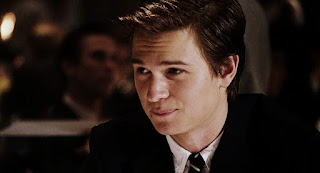Raymond Chandler was evacuated to Britain, concussed and “shell-shocked,” where he began drinking heavily. In all likelihood, Chandler’s experience of war caused the author psychological injury, yet because the existing biographical material is vague it does not allow us to comprehend the gravity of Chandler’s war experiences. The First World War was a pivotal moment for the twenty-eight-year-old Chandler. While Frank MacShane believes that the psychological impact of war would make Chandler block out the memory of it, many have overlooked the experience as a key influence upon Chandler’s formulation of Philip Marlowe. Chandler’s only overt depiction of warfare, a short piece of prose titled “Trench Raid,” has generally been cited as the writer’s only attempt to exorcise his demons. Written between June and December 1918 while recuperating in England, “Trench Raid” is the only work in which Chandler explicitly attempted to recount his war experiences. In 1957 he wrote, “Once you have led a platoon into direct machine gun fire, nothing is ever the same again.” Officially
discharged from the Canadian Army on 20 February 1919, Chandler
returned to America, but quickly became restless.
He traveled
the Pacific Coast, becoming particularly familiar with Washington
State, a familiarity that he would later use in his short story
“Goldfish” (1936). In 1932, Chandler was dismissed from his job at Dabney Oil Company as the direct consequence of his alcohol dependency and love affairs with secretaries. In hindsight, MacShane believes that Chandler’s novels were successful because “Marlowe was an ordinary Black Mask character: tough, an honest man in a crooked trade. This kind of hero is common in American literature and seems to represent a faith in the incorruptibility of at least part of the population”. In a letter to Edgar Carter in 1957, Chandler expressed: “Marlowe is a character of some nobility, of scorching wit, sad but not defeated, lonely, and never really sure of himself. He doesn’t talk or behave like an idealist, but I think that he is one at heart.”
In 1946 Ray and Cissy moved to La Jolla, a community within San Diego, in Southern California. The Long Goodbye can be interpreted as Marlowe’s drawn-out farewell to his war veteran friend Terry Lennox. Furthermore, the novel also suggests that it was Chandler’s attempt to rid himself of the psychological symptoms of his own postcombat stress. Despite this valiant attempt, neither objective was actually achieved since the novel ends with Marlowe more disillusioned than ever, being both deceived by Lennox and still beset with an overwhelming sense of desolation. Chandler received his biggest blow in December 1954 when, after long periods of hospitalization, Cissy finally died. It was not until his fourth suicide attempt on 22 February 1955, when Chandler attempted to shoot himself in a drunken stupor, that those closest to him actively responded to his plight. Cissy had been Chandler’s major stabilizing influence on his troubled life. With her death his depression and suffering came flooding back with devastating effect. The remaining five years of Chandler’s life proved to be his most destructive: “life was empty in every respect, and the future seemed completely without purpose”. As Jerry Speir noted, Chandler’s last lonely years “serve as an indicator of the depths of the frustration of this man.” On 23 March, after yet another heavy bout of drinking, he was admitted to La Jolla Convalescent Hospital suffering from pneumonia. Two days later he was transferred to the Scripps Clinic where he died on 26 March 1959.
Chandler’s lonely existence was echoed in his death. After a funeral service that was attended by just seventeen people, he was buried in a small plot in Mount Hope Cemetery in San Diego. It was not until one decade after Chandler’s death that critics such as Wilson Pollock in his 1962 article “Man with a Toy Gun” for The New Republic, began to appreciate the striking similarities between the so-called “low” cultural work of Chandler and the “high” literature of the Lost Generation. Pollock argued that the major difference between Chandler and Hemingway was an artificial demarcation based entirely on the literary canon. Chandler first utilized the modernist style of Hammett, which he then advanced into something new, imposing his own unique stamp on the genre. Hammett’s heroes—the Continental Op, Sam Spade, Ned Beaumont—were violent, but, arguably, that violence was not necessarily sensationalist. Instead, as Philip Durham suggests, “It was rather a kind of meaningful violence, sometimes an explicit description and implicit criticism of a corrupt society.”
By articulating themes common to the Lost Generation, and in belonging to, as Malcolm Cowley notes, the “World War One generation,” Chandler can be considered alongside this group of distinguished writers. Authors William Strauss and Neil Howe define the Lost Generation as the cohort of writers born from 1883 to 1900, who came of age during World War I and the Roaring Twenties. In Europe, they are mostly known as the "Generation of 1914", for the year World War I began. Chandler can justifiably be discussed alongside canonical writers such as Hemingway, Fitzgerald, Faulkner, Dos Passos and T.S. Eliot simply due to historical terms and ideology.
In his essay The Simple Art of Murder, Chandler noted: “Hammett was an ace performer. For all I know, Hemingway might have learned something from Hammett.” As stories became more about the “self,” Stephen Knight notes, “It is through this sense of isolation that the private-eye story is in fact more innovative. The world-weary feeling of the Hammett-Chandler detective seems related to a growing dismay with modern mercantile society, with its sense of lost dreams and the dangers of over-sophistication.” Marlowe’s chivalric persona comes, in fact, from a much darker place, and his inner conflict and sense of estrangement are suggestive of a far more complex cause. The recurring themes in Chandler’s novels are significant indicators of Chandler’s affinity with the Lost Generation, involving numerous examples of both physical and psychological trauma.
In a similar style to T. S. Eliot’s The Wasteland (1922) and John Dos Passos’s Manhattan Transfer (1925), Chandler’s novels represent an urban environment as a source of alienation and decay; the city of Los Angeles has been reduced to a hollowed-out void, a colorless place whose inhabitants have been stripped of identity. Feelings of “melancholy, regret and emptiness” are common in the hard-boiled genre. Fragmentation, complexity, and ennui, which are unique to early American crime fiction, are characterized by violent tensions and occasional irreconcilable contradictions. In this turbulent urban landscape, Chandler created a war veteran detective who has been robbed of any recognition of “self” in exactly the same way as he had been robbed of his individuality while serving as a cog in the nation’s war machine. In the same way we observe the parallels between Jay Gatz in The Great Gatsby and Joe O’Keefe in Manhattan Transfer with Chandler’s Philip Marlowe.
Chandler’s fictional detective is thus an attempt to bridge the gap between the noble ideals for which war was fought and the degrading actuality of contemporary society. Marlowe strives to work to ameliorate society’s ills against seemingly overwhelming corruption because if he does not, he believes his sacrifices will have been in vain. The detective can thus be viewed as a broken and disillusioned man on a quest to find justice and decency in an increasingly corrupt and selfish society. The detective is reconfigured as a Lost Generation character in a hard-boiled crime fiction setting. Marlowe has the appearance of an ordinary yet unusual man trying to restore what he perceives as the balance between “good” and “evil,” often ending with him “trying to mete out simple justice.”
The transgressors in Chandler’s novels are almost always women—Carmen Sternwood, Velma Valento, Elizabeth Murdock, Mildred Haviland, Orfamay Quest, Eileen Wade—and all of them are helped by Marlowe to avoid punishment for their various crimes, deceptions, and misdemeanors. But this open-mindedness toward female characters is also balanced by the fact that some of Marlowe’s closest personal acquaintances in the novels are women, such as Anne Riordan and Linda Loring. It is no coincidence that Bill Chess, Terry Lennox, and Roger Wade are all men characterized as war veterans, and each is willing to confide in Marlowe and discuss their residual war experiences. Chandler acknowledged: “I don’t mind Marlowe being a sentimentalist because he always has been. His toughness has always been more or less a surface bluff.”
Marlowe shows tenderness at the end of The Long Goodbye, where, after spending the night with Linda Loring, Chandler writes: "We said good-bye. I watched the cab out of sight. I went back up the steps and into the bedroom and pulled the bed to pieces and remade it. There was a long dark hair on one of the pillows. There was a lump of lead at the pit of my stomach. To say good-bye is to die a little." This scene demonstrates that Marlowe is perfectly capable of displaying genuine affection for women, a feature that is evident in his friendships with Merle Davies, Anne Riordan, and his marriage to Linda Loring in the unfinished Poodle Springs (1958). But while Marlowe may occasionally place women on a pedestal, he nevertheless recognizes, unlike other “traditional” hard-boiled detectives, their democratic human value and social parity; a distinct departure from either the highly sexualized femme fatale—for example, Cora in James M. Cain’s The Postman Always Rings Twice, or Effie Perrine in Hammett’s Sam Spade novels. Marlowe demonstrates this empathy when responding to Terry Lennox’s complaint about “women screwing up their faces and tinkling their goddam bracelets and making with the packaged charm.” Marlowe simply replies by saying, “Take it easy. So they are human. What did you expect—golden butterflies hovering in a rosy mist?”
Jerry Speir argues about Marlowe’s biggest downfall: “he is never able to achieve an understanding of himself as operating within a fallen world.” While this is a reasonably accurate summation, Marlowe certainly does acknowledge on many occasions that American society has let itself slide into immorality and corruption. Society’s fragmentation increasingly disturbed Chandler as it placed the accumulation of wealth and power above all else regardless of the consequences, and to the detriment of moral and ethical values. He used the decaying cityscape as a metaphor for the decline in social accountability, and with it, society’s ignorance and renunciation of veterans. Michael Parish explains that this awareness stood in stark contrast to the social decadence. “In their first sustained experience with a full-blown consumer culture, Americans learned the truth of the ancient poet Juvenal’s observation that ‘luxury is more ruthless than war.’ A consumer society that sanctioned perpetual technological change, the generation of new fashions and the ultimate sovereignty of the market did not respect inherited values or the social status quo.”
Chandler reserved his bitterness and contempt for society as a whole and those who occupied the upper echelons in society in particular, whom he considered “phoney.” As Marlowe says in The Big Sleep, “To hell with the rich. They make me sick.” Roy Meador observed the disillusioned affinity between Chandler's The Big Sleep and John Steinbeck’s The Grapes of Wraith, also placing them alongside Nathanael West’s The Day of the Locust; all of which were published in 1939. However, of these novels, Meador argues that The Big Sleep is by far the most popular because as a character, “Marlowe encompasses the others and reaches out to new dimensions”. As a result, The Big Sleep has, in his opinion, “established as permanent a hold in American culture as Bogart’s twitch.” Marlowe makes a funny reference to Hemingway in Farewell, My Lovely. After detective Galbraith repeats Marlowe’s words, the detective begins calling Galbraith “Hemingway.” He says “Listen, Hemingway, don’t repeat everything I say.” Galbraith asks, “Who is this Hemingway?” Marlowe replies, “A guy that keeps saying the same thing over and over until you begin to believe it must be good.” In letters to Blanche Knopf, Chandler argued that one of Hemingway’s biggest problems was that “ninety per cent of his writing is self-imitation. He never really wrote but one story. All the rest is the same thing in different pants—or without pants. And his eternal preoccupation with what goes on between the sheets becomes rather nauseating in the end”.
As Merle Davies states in The High Window, “People are always telling you to forget unpleasant things. But you never do.” By denying Marlowe a past, Chandler may have been granting the detective a freedom that he himself did not have, a life free from emotional or familial ties. In The Lady in the Lake, after being knocked unconscious, Marlowe says, “Someday it will all come back to you. And you won’t like it.” MacShane argues that Marlowe’s sarcastic dialogue is “not just for the sake of the jokes and wisecracks. It is his chief weapon. Chandler has Marlowe choose his words in such a way as to throw his opponents off base.” In The Long Goodbye, before playing a chess game, Marlowe inspects his pieces. He says, “I filled a pipe, paraded the chessmen, and inspected them.” Marlowe describes the game as “seventy-two moves to a draw, a prize specimen of the irresistible force meeting the immovable object… and as elaborate a waste of human intelligence as you could find anywhere outside an advertising agency.” Speir has suggested that Marlowe’s comment in this scene is one of disdain intended to signal that he no longer holds playing chess in high regard. However, by using chess as a representation of the detective’s cynical view of society, Marlowe’s contempt is reserved not for the game, but for society itself. Marlowe, in his most ambitious case to date, feels as though he has played “seventy-two moves to a draw,” showing how weary the detective has become. He is playing the game to the best of his abilities, but all he can achieve is a stalemate in a social order that thrives on deception. Life itself has become a literal contest of “irresistible force meeting the immovable object.” —"War Noir: Raymond Chandler and the Hard-Boiled Detective as Veteran in American Fiction" (2016) by Sarah Trott







